In rural Cambodia, many households are burdened with having to collect and treat their own drinking water. The USAID-supported and WorldFish-led Feed the Future Cambodia Rice Field Fisheries II (RFF II) project has found an innovative way to integrate fish conservation research with improving access to safe drinking water. The innovative approach focuses on using bodies of water that protect wild fish during dry periods, also known as community fish refuges (CFR), as a source of drinking water by collecting, sanitizing and distributing the water via water kiosks.
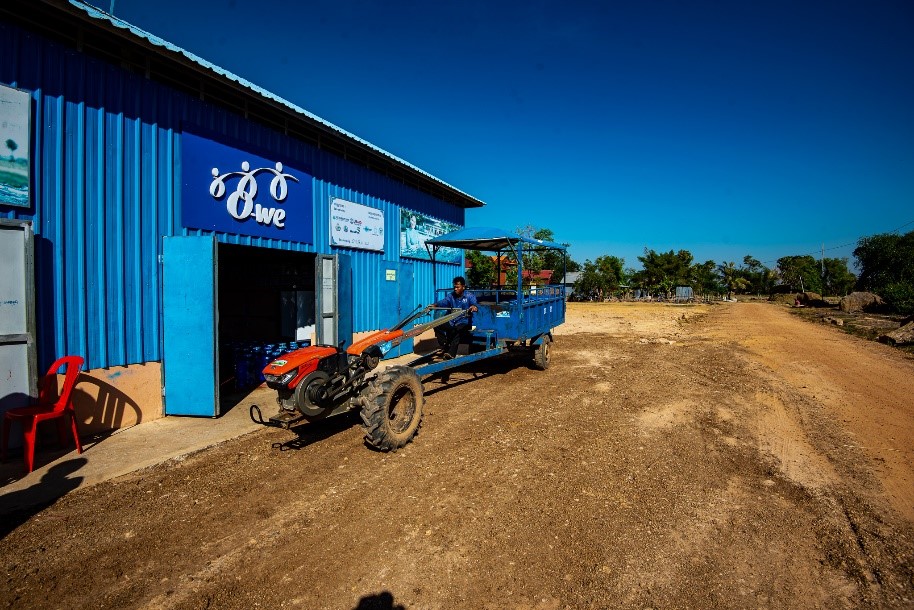
As a result, five drinking water kiosks in Pursat, Cambodia have been supplying quality drinking water to their local communities for over a year. Each kiosk can sell up to 2,800 twenty-liter bottles of drinking water per month, including hundreds of bottles to local schools. Additionally, a portion of the income earned from selling the water is re-invested into community fish conservation efforts, contributing to nutritious wild fish continuing to be available to the many local families who rely on them.
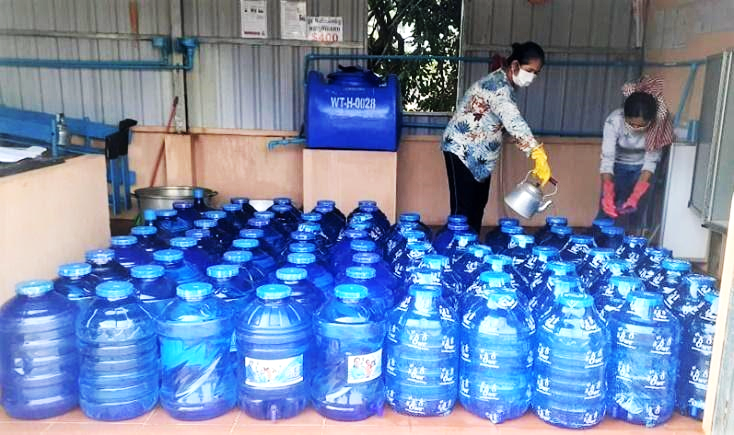
However, the recent COVID-19 outbreak has brought with it some challenges for the sustainability of these water kiosks. The natural fear surrounding COVID-19 affected not only the confidence of water kiosk staff in continuing their day-to-day activities, but also the confidence of clients, who had become concerned about leaving their homes to purchase water. Clients also voiced concerns about COVID-19 potentially contaminating the water.
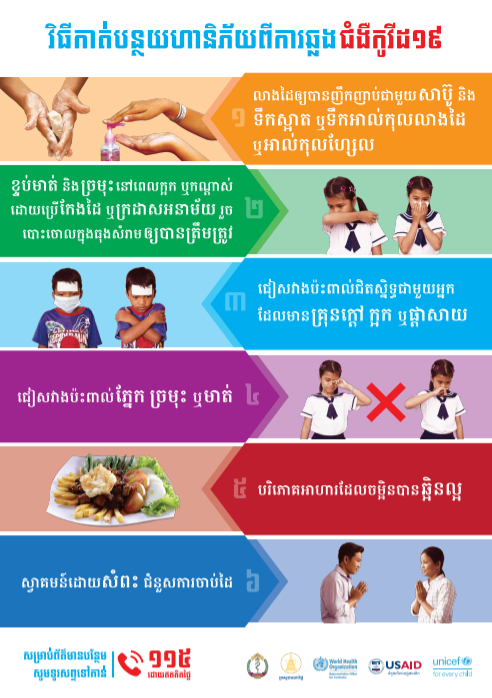
In a joint effort with several local partners in Cambodia, the RFF II project aimed at solving these challenges, by visiting the sites and providing water kiosks with COVID-19 guidelines on physical distancing, wearing masks and using hand sanitizer. Each station now diligently uses sanitizer and masks to protect themselves and their clients. These adjustments reassured the water kiosk staff that continuing to work was safe as long as these protocols were followed rigorously.
As the situation changes rapidly, WorldFish experts continue to closely monitor the water kiosks and the community fish refuges through regular phone calls and video broadcasting. Door-to-door delivery service has been introduced and water quality checks have become more frequent to provide reassurance to clients about water quality.
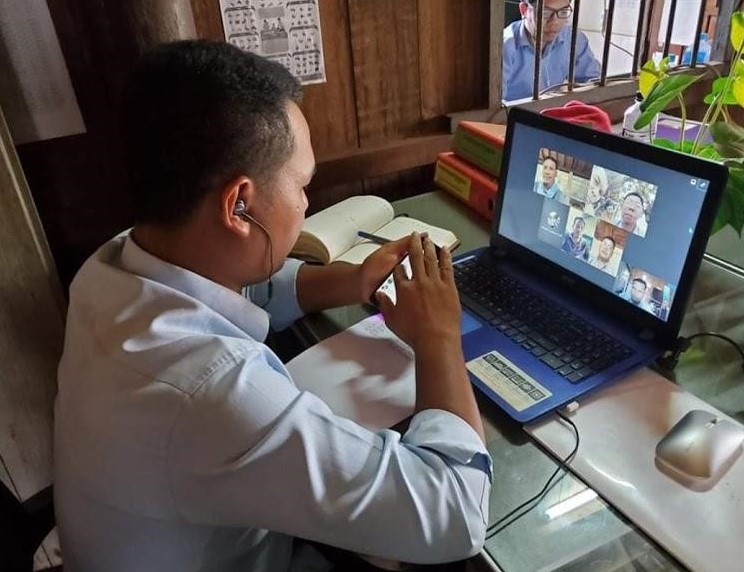
As of May 13th, 2020, all five kiosks in Pursat have reported increase in the sales of drinking water, showing the strong commitment of the local community, entrepreneurs and fish farmers to help water kiosks in overcoming the dire situation.
“Thanks to support from ANKO and Teuk Saat 1001, sales are showing improvement and we are feeling safer at work. Now we have sufficient thermometers, masks and sanitizer and we have also taken the preventative measures needed to stop the spread of COVID-19 during our work.” - said Ms. Vorn Chantha, a water kiosk operator.
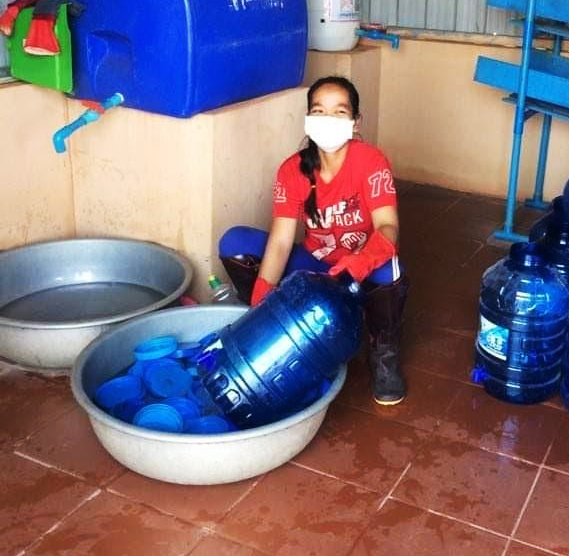
In April 2020, all kiosks sold more than 100 bottles per day – significantly higher than 70 bottle per day average. Through the RFF II project, these water stations have already improved access to safe drinking water for more than 120,000 people. Their resilience in these turbulent times are positive signs for the future.